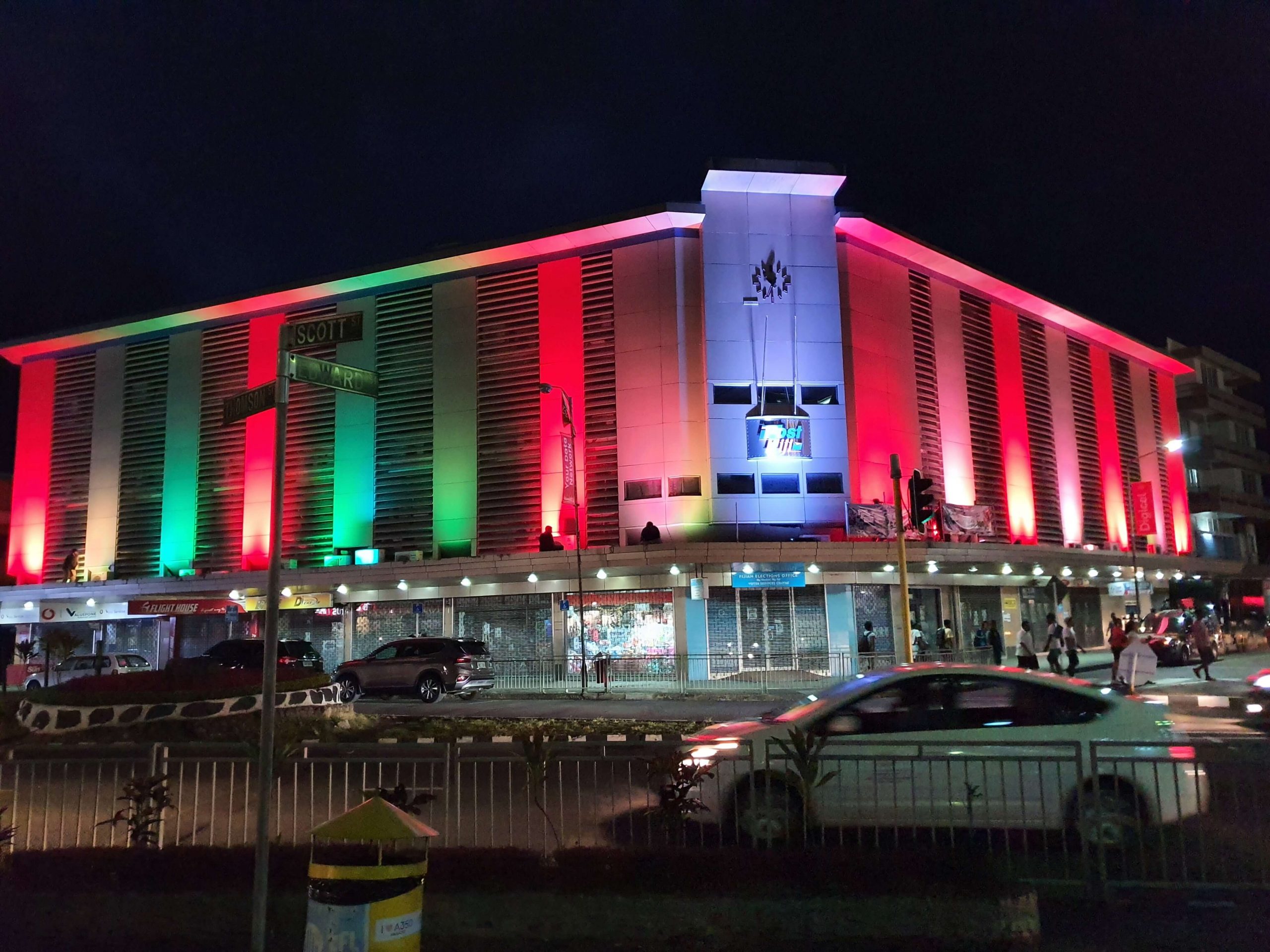What do you do when the global pandemic shuts borders and cuts international mail services; services that were previously your bread and butter? If you are Post Fiji, you diversify your offerings and look to digital options.
Post Fiji Chief Executive Officer, Dr Anirudha Bansod says COVID-19 saw revenue from international postage decline “to the tune of almost 82%.” As a “commercial arm of the Fiji government” Dr Bansod said they could not rely on grants, but he had to find a way to keep employees—some who had been with the company for 20 or 30 years—in their jobs.
One major pivot was product diversification. Prior to COVID, stationary—particularly school supplies—was a major product line in Post Fiji’s shops. However with school closures and the inherent seasonality of such items, Dr Bansod could see that the shelves were empty, or product was just not moving.
His solution was to start stocking groceries in these stores. The company’s footprint—58 stores across Fiji—was its biggest comparative advantage. But moving into different product lines was a big learning curve Dr Bansod says.
“I was very honest with our suppliers” he admits. “[We had to] open our heart, saying that, look, we are very new into the business of groceries. And it’s time for us to learn. We can offer you our shelf space, but you have to tell us what product sells, what products don’t sell and how the regulated/nonregulated items work, how the expiry date has to be monitored, so all operating procedures. You have to guide us and teach us, and it’s a win-win situation between you and us.”
Dr Bansod says the strategy has worked, as they have not sought to compete directly with the big urban supermarkets, but rather develop a mini-market concept which concentrates on basic items. He has also kept pricing competitive.
“We purposefully kept our prices at the lower [end]. We did receive some of the questions from the private entities; why are you are selling so cheap, but our objective was very clear. It’s not to maximise profit, it is to sustain our business with a reasonable margin so that we can keep on giving the salaries for people and run the operations.”
“Eating our pie”
Dr Bansod also made what he calls a challenging decision, which was to terminate Post Fiji’s contracts to facilitate Vodafone and MPaisa money transfer services. He states the numbers were clear as they had their own money order product but had a competitor “sitting in our house and eating our own pie.”
“This is the killer when we have our own product, why we are allowing competitors to sit and eat and increase their own market share and increase their profitability when we have literally getting peanuts,” he told his team and Board.
Post Fiji has subsequently rebranded its own product from FlashCard to Post Money Order. The product is an important part of the business at a time when both international and domestic remittances have been so important.

Ecommerce: a game changer
Post Fiji is also strengthening its online offerings, relaunching the Post Express online store. The company has strengthened its warehousing and storage capabilities, enabled payments via debit cards through a strategic partnership with Bank South Pacific (BSP) and leveraged the EMS (Express Mail Service) network.
Dr Bansod says challenges remain, for example the lack of a national payment switch, but that the Fiji government, Reserve Bank of Fiji and other partners are working to address this. “That will be a game changer” he asserts.
Post Fiji is taking a phased approach to its online services. Phase One is to see all existing postal services; bill pay services, locksmith services, international stamp sales, payment for post boxes (there are 70,000 of these across Fiji) available online. The second phase is to support micro, small and medium sized enterprises (MSMEs) to use its ecommerce platform and see real returns for their efforts and talents.
“There are so many talented women and men out there developing such beautiful products. The products are extraordinarily good… they come up with a lot of innovative and creative products, and they try to sell the product at much cheaper prices. The reason being because they do not understand the value of … their product or services.”
Dr Bansod has a PhD in Marketing, and he sees a role for supporting businesses to enhance marketing, packaging and pricing to improve their profitability, “so they can sell their product to the international community, so they are not only locked up into the local domestic market.”
He also sees a role for Post Fiji in offering these services internationally (see Islands Business June 2021 for more details.)
Competitive advantage: The man-made GPS
Post Fiji has also launched a home delivery parcel service, which gives customers the option of door-to-door delivery rather than having to pick up parcels from Post Fiji locations once they have cleared customs, biosecurity etc. Dr Bansod says this has proved popular as people try to isolate at home as much as possible during the second wave of the pandemic in Fiji.
The EMS delivery service has also seen substantial growth as small businesses that have sprung up with the collapse of tourism, seek to fulfil orders. Dr Bansod believes this is a much more reliable option than unproven and unlicensed delivery services where he says, small businesses are taking a huge risk for the sake of $2 or $3 in savings.
He says Post FIji’s other competitive edge is experience in delivering to customers in a market where there are no postcodes, area demarcations are often unclear, and streets are often not numbered sequentially. Dr Bansod says while he has seen some supermarkets struggle to find residential addresses as they move to home delivery services, Post Fiji’s drivers’ “manmade GPS is so strong… our drivers are extraordinarily great in finding each and every place. You just give them the address and they know that each and every location so thoroughly.”
